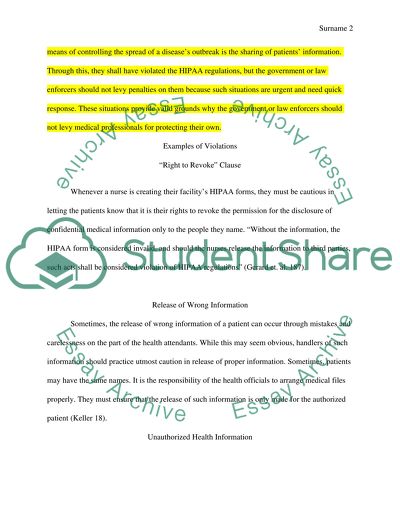Cite this document
(“HIPAA Violations Essay Example | Topics and Well Written Essays - 1250 words”, n.d.)
Retrieved de https://studentshare.org/english/1640871-hipaa-violations
Retrieved de https://studentshare.org/english/1640871-hipaa-violations
(HIPAA Violations Essay Example | Topics and Well Written Essays - 1250 Words)
https://studentshare.org/english/1640871-hipaa-violations.
https://studentshare.org/english/1640871-hipaa-violations.
“HIPAA Violations Essay Example | Topics and Well Written Essays - 1250 Words”, n.d. https://studentshare.org/english/1640871-hipaa-violations.


